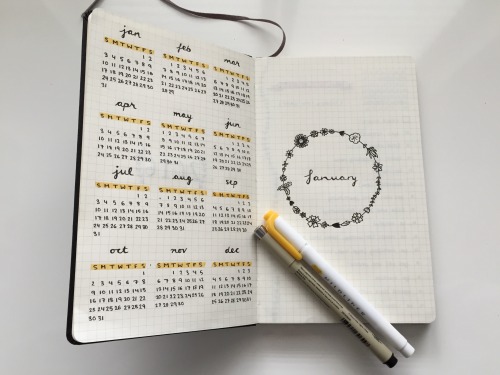A Small Guide On How I Battle My Essays! (click On An Image To View It Clearer)

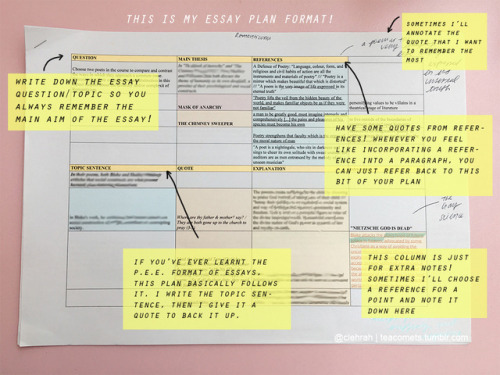
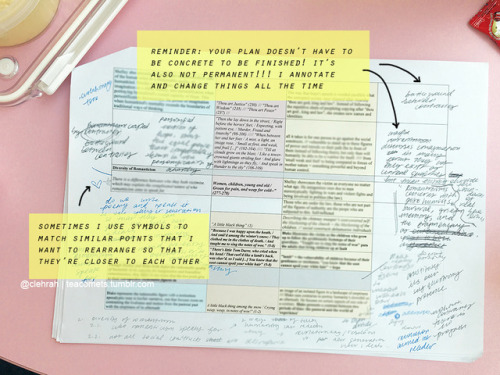
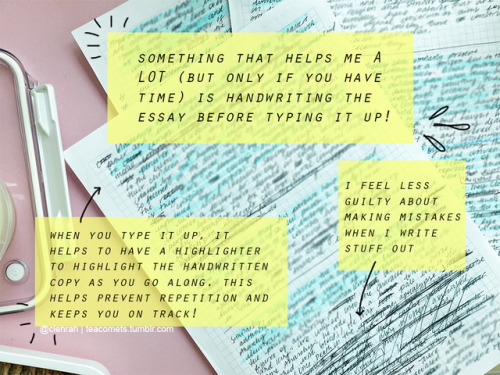
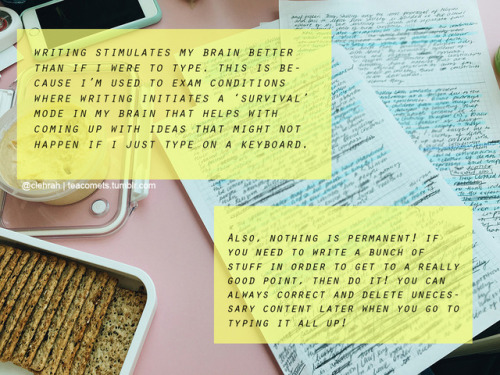

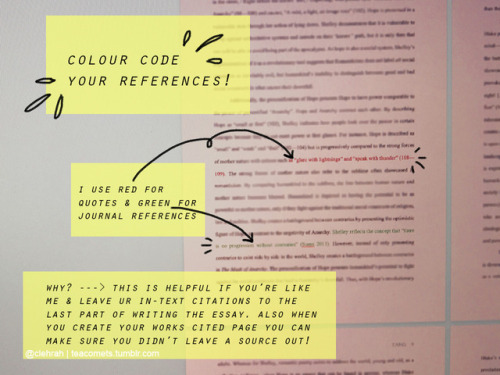
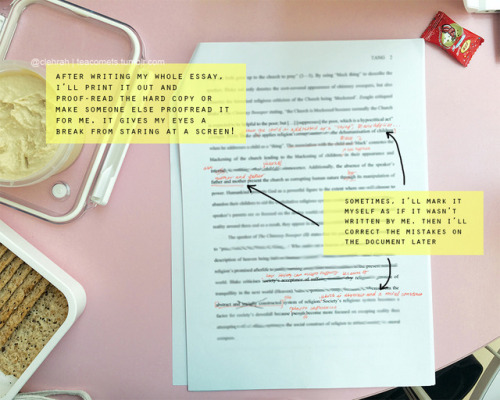

a small guide on how i battle my essays! (click on an image to view it clearer)
(keep in mind: i’m an english major so a majority of my essays are literature-focused!)
these are just some of the methods i want to share that work for me when i write my innumerable amount of essays! i’m definitely a huge planner so it’s no secret that i spend a lot of time on an essay. if you’re a deadline fighter, these tips might not necessarily be helpful (especially the handwriting one). but i hope this gives you an insight on how i write my essays! 🌈
More Posts from Swirlspill-study and Others
Tumblr Resources to Get You Through the School Year!
Hi guys!! Thank you all so much for your support!!! Happy 250 (EDIT: I SPENT A DAY ON THIS AND NOW IM PAST 300) and hope you all have a great start to the month! The community is more welcoming with all of you - I haven’t faced negativity from anyone at all. None of these are my posts - but they’ve helped me out a lot. With that said - let’s get started:
For bujos/planners:
This is one of my side blogs, and has tons of inspiration for weekly and monthly spreads, as well as a few aesthetic ideas and how to start one. I update this constantly.
How to start a studyblr - Studyblrs with creative fields
Lighting (for photos)
Study spreads
Planning your month
Printables (the same as some used down there but in a different category):
Weekly printable
To - do printable
Cornell Notes printable
Back to school printables
Daily Planner @theorganisedstudent
Weekly Planner II @theorganisedstudent
Essay Planner @theorganisedstudent
Assignment Planner @theorganisedstudent
Assignment Tracker
Novel Notes
Plot Diagrams
Correction Sheets
Grid & lined paper
Weekly schedule for studying
Printables masterpost
Exam printable & how to use it
2018 Calender set (by my QUEEN @emmastudies)
For students:
Exams & Studying:
Exam revision guide
How to beat different types of procrastination
How to deal with a crappy teacher (this has to do with studying ig)
Study tips!! (its a masterpost)
Exam Printable & How to Use it
Exam & Homework tips
Coping with hell i mean exams i mean hell
A cool studying outline to try
This is my favorite thing and it’s when to use certain remembering techniques
Correction Sheets
Memorization tips for different learners
Weekly study schedule
More sites to use in normal studying routines
How to study smarter and not harder
Study smarter II
Exam printable & how to use it
Self discipline
Study methods
Hoe tips for school and studying
Studying masterpoint
Tips and tricks to studying
Study tip - so easy
How to stay organized to study
Note - Taking:
Lecture notes
How i set up flash cards (these are nice to study from but be determined to finish setting them up)
Nifty highlighting idea (this post is so old)
Highlighting idea that i actually use
How to take Cornell Notes
Cornell style notes printable (gridded)
Notebook paper (grid & lined)
Tips for pretty notes!!
How to take notes
Notes for different classes
Life, man & general school stuff:
Back - to -school guide
Things I learned as a college freshman
Get ORGANIZED
Textbooks are expensive so here’s some free ones…
Tips for working students that sound extra but may work for u ily don’t overwork urselves
Masterpost for motivation and stuff
Get ur life together again bc haha i stay organized for like a day anyway
School supplies that u should have just to stay minimal
Grad school tips
Organization masterpost
Productive afterschool routine
30 websites to kill boredom
Back to school masterpost
Get confident in presentations
Overcome procrastination
Succeeding in school masterpost
For bad days
For bad days II
A GOOD MASTERPOST for getting ur life together
General school tips
Free online courses
GOOD POWERPOINT TIPS
Sites to learns stuff
More learning stuff sites
Dealing with a trashy class
Study resources masterpost
Summer Productivity
Summer life tips
PLEASE READ THIS THIS IS SUCH AN IMPORTANT MASTERPOST
Honest guide to college
University tips
SCHOOL MINDSET
What to do on Sundays
Back to school masterpost
Useful things for going back to school
How to clean your house
Cute self care tips!
More self care tips
Plant care tips!
English:
A handy list of words to fit into ur essays
How to write an article like a journalist
Words to replace over-used words
ESSAY STRUCTURE IDEA this is in bold so u losers don’t miss this bc it’s not just for English u nerds
Get gucci while reading and be an active reader
Get gud reading them academic articles amigo
Words to replace “the author or whatever shows…” bc that is baby writing and i accidentally used that on an essay and i failed so
Novel notes
Plot Diagrams
Reading Lists
Literary techniques (what themes, personifications, metaphors are etc)
Discussing in English
How to top a literature class
Literature class masterpost
Strong/weak verbs
More essay tips!!
MLA format - a how to
ESSAY GRADER.
How to avoid essay cliches
Chemistry (I’m taking chem so i have a few resources aha)
Da terms on exam papers
Chemistry resources masterpost
Cute periodic tables
Study chapters
History/Social Studies
How to write a history paper
AP world history powerpoints masterpost
Math
General tips
Resources
Understanding math masterpost
Test Prep
PSAT I
PSAT II
ACT tips!
100 words for the SATs (start studying early!!)
Thank you so much for the support! I couldn’t have done it without all of you. A simple reblog or like will help others see these tips, and will be very appreciated. I hope these links work - feel free to message me with questions and other links!! A possible part 2 might come out at the end of august, and one for languages!!!



Music revives me after stu(dying) 12+ hours a day ;-; If y'all have any music recs please hmu ♡

scholarships are the bomb!! free money to get urself an education!! here’s my best advice aaand resources for applying + getting some of that sweet sweet money :D
advice
use all of the databases!! the scholarships are right there for you. Take advantage of them, srsly!!! many let you input your criteria + they’ll match you up with some, and they help to organize your applications. You can subscribe to their newsletter and get alerts for new scholarships. there’s a whole bundle below all this advice to getchu started :D
start early + don’t stop: your eligibility for scholarships starts pretty much freshman year of high school, and basically doesn’t stop until you’re out of education, so take advantage of them!!! Logically, applying to more gives you a higher chance of winning one, so keep ploughing through them
don’t let essays scare you off: sweepstakes scholarships are easiest to apply for, but this also means they have more applicants. Do your best work + put time into essay-based scholarship contests, and up your chance of winning something!! Factor them into your normal routine like you would a homework assignment and just keep at it.
keep track of what you’ve applied for: seriously. Do it. It’ll motivate you when you’re not feeling like it, + keep you organized. Set up a spreadsheet (google sheets, excel, whatever floats your boat) and give it 5 columns: title of the scholarship, amount worth, whether or not you’ve applied, if you were successful, + the organization offering it. It’s also a great reminder of scholarships to reapply for next year.
check local scholarships: they’re waayyyy more restricted so the applicant pool is a lot smaller!!! Check your school, organizations you belong to, your parents’ companies, + local businesses. You’ll be competing against people in your town/county/district + it’ll give you a much better shot at winning. Check out your school’s website + talk to your guidance counsellors!
be specific: narrow down that applicant pool early. When you’re googling, look for scholarships that will apply only to you, so don’t just search ‘scholarships’. Look for ‘scholarships for bisexual women’, or ‘scholarships for international students’, or ‘scholarships for left-handed volleyball players’. Less applicants=better outcomes.
don’t apply to scams: be wary!!! Two big things: be careful of scholarships which want you to pay to apply, and guaranteed scholarships. Research pay-to-apply ones to make sure they’re legit. There’s more info here, here, and here on avoiding scholarship scams. Stay safe!!
scholarship databases
unigo goodcall scholarships.com niche scholarshipmonkey fastweb chegg cappex dosomething scholarshippoints nextstudent college board
more scholarship masterposts
college scholarships masterpost by @wonderstudying
how to search for scholarships by @adamparresh
scholarships! by @the-regular-student
it’s ya girl’s college scholarship masterpost by @jesussbabymomma
scholarship 101 by @thisexpedition
scholarships: how to find them and apply by @futurecristinayang
good luck!! you’ve got this :D
ewwwwwwwwwwwwwwwwwwwwwwwwwwwwwwwwwwwwwwwwwww
writing adult emails is awful
its like
hi [name of person],
this formatting is making me uncomfortable but I have to tell you something / ask you something that is vital to my career as a student.
I re-read and edited that sentence for an hour, but you’ll probably just glance over it for half a second.
thanks!
- [name]

What you do speaks so loudly that I cannot hear what you say.
— Ralph Waldo Emerson
How to Take Notes: from a Textbook
(Be sure to change the post type from link to text post when you reblog, if that’s what you want to do)
This method is best suited for textbook or article notes, and is a version of revised notes. It is also well suited for books you plan on returning to the bookstore or books you have rented, as it does not involve writing directly in the book itself.
First, you’ll need to find a notebook, and the pens you like the best. My favorite notebooks to work with for note-taking, especially for my “revised” notes, are the Moleskine, hard or soft cover, in size extra large. For this specific class (Intro to Gender and Women’s Studies), I decided that lined pages would suit my needs better. For my math, engineering, and science classes, I usually opt for squared paper, as I draw in lots of diagrams and graphs.
My favorite pens ever are Staedtler Triplus Fineliners, so even though they show through the pages a little bit, I still choose to use them. I just love the way they write. I usually write out my notes themselves with a Pilot G2 05 with black ink, as it writes with a finer line and doesn’t bleed through quite as much.
I usually try to set up my notebooks about a week or so before class starts, that way it’s ready to go on my first day of class.

You’ll want to start off by setting up your notebook. On my first page, I put my course code for my university, as well as the course title.

Next, and this is perfectly optional (I just like the way it makes the book look, especially at the end of the semester), I include some sort of related quote to the course. For my engineering courses (which are related to my major), I put a different quote at the beginning of each section. But as this is a two-month long course during the summer, I opted for one quote by Mohadesa Najumi at the beginning of my book.

Next I set up my table of contents and include a page with basic course information. As this course is all online, my course information just included the start and end dates of the course, what time content is posted and on what day, and the name of my professor. For my usual courses, I will include the days of the week the class meets on and where, TA names and contact info, as well as posted office hours for my professors and TAs and tutoring hours either in the library or in the College of Engineering.

Next is one of the things I’m most proud of.
While I religiously use my Erin Condren planner to map out my days, weeks, and months, I have found throughout my college experience that including monthly views for the months my class ranges has been helpful. This way, there’s no sifting through the multiple colors I have in my planner, and everything related to that class is in the same notebook.
On this calendar I include start dates of the class, the end date, the dates of exams or quizzes, assignment deadlines, office hours, etc.
For this course, as I just started a few days ago, I don’t have a lot of dates or information, so my calendars are still very empty.


Next up I go to my weekly overview. At the beginning of each week, I set up a weekly layout, and I include a list of assignments, tests, quizzes, tasks, projects, etc that need my attention throughout the week, and I place the days I plan on doing them or the days they need turned in onto the weekly layout.

Now you’re finally ready to get into taking the notes.
Gather your book, some sticky notes, and your favorite pen or pencil.
I color code my stickies so that the “revision” process later goes a bit smoother. In this case, I’m using blue to denote something interesting, intriguing, or thought provoking, greenish-yellow to represent the facts or important concepts, and pink for important vocabulary words and their definitions.

Read the selection once.
As you read along the second time, write notes on your stickies, and place them in a place of relevance directly on the page in the book. Just make sure you don’t cover up anything you need to keep reading.



Now, once you’ve read all the material in questions (you can choose to break it up however you want, but since Chapter 1 was assigned for the week, I’ve elected to break it into chapters), carefully remove your stickies one by one and lay them out on a flat surface. This is when having a separate color for vocab can be helpful, as I sometimes put all of my vocab at the beginning or end of a section, especially if the section of reading was particularly large.
Organize your stickies in an order that makes sense to you, and use this order as your basis for transferring those notes into your notebook. The order you choose can just be lumping them under similar headings. Some classes even lend themselves to a nice chronological order. Whatever you choose, just make sure it’s something that will make sense to you when you come back to it in the end.

Okay so up there I wasn’t following my own advice, I just thought I would include the picture because my handwriting looks nice…

Now organize the stickies!

Now you just start writing everything from the stickies into your notebook. I like to take each category or subgroup and put them in the book on the facing page, then put them back in my textbook as I finish with each post it.

Moving on to the next category.


Before you know it, you’ve written all of your stickies into your notebooks.

Now you’re revved up and ready to go. You can either keep going and make a note summary page (which I’ll show you next week), or you can leave it. These will also be helpful when reviewing for tests and quizzes. You can highlight or underline, or use even more stickies (which is what I usually do) as you review.
Well, that’s all I have for you right now. Happy studying!
(To view this post on wordpress, click here)


yesterday I realised that I barely know anything in maths so I’m having to sort myself out - trying to go over 2+ topics a day, making what I like to call “emergency notes”, so far so good but #prayforzoë
-
 tpbgui reblogged this · 2 weeks ago
tpbgui reblogged this · 2 weeks ago -
 tpbgui liked this · 2 weeks ago
tpbgui liked this · 2 weeks ago -
 naistudylab reblogged this · 1 month ago
naistudylab reblogged this · 1 month ago -
 electronicmemory liked this · 2 months ago
electronicmemory liked this · 2 months ago -
 kiki-miserychic reblogged this · 3 months ago
kiki-miserychic reblogged this · 3 months ago -
 wearestardust liked this · 4 months ago
wearestardust liked this · 4 months ago -
 nothoughtsbetweenthoseeyes reblogged this · 4 months ago
nothoughtsbetweenthoseeyes reblogged this · 4 months ago -
 wymm11 liked this · 4 months ago
wymm11 liked this · 4 months ago -
 necromancing-and-archiving liked this · 4 months ago
necromancing-and-archiving liked this · 4 months ago -
 satansthirdniple reblogged this · 4 months ago
satansthirdniple reblogged this · 4 months ago -
 satansthirdniple liked this · 4 months ago
satansthirdniple liked this · 4 months ago -
 vjeronyka liked this · 4 months ago
vjeronyka liked this · 4 months ago -
 chknhero liked this · 4 months ago
chknhero liked this · 4 months ago -
 18th-record reblogged this · 4 months ago
18th-record reblogged this · 4 months ago -
 btsbegins liked this · 4 months ago
btsbegins liked this · 4 months ago -
 starliqhtnatti reblogged this · 4 months ago
starliqhtnatti reblogged this · 4 months ago -
 starliqhtnatti liked this · 4 months ago
starliqhtnatti liked this · 4 months ago -
 punishmentofaangel liked this · 5 months ago
punishmentofaangel liked this · 5 months ago -
 plantwarfare reblogged this · 7 months ago
plantwarfare reblogged this · 7 months ago -
 plantwarfare liked this · 7 months ago
plantwarfare liked this · 7 months ago -
 izzietooth liked this · 7 months ago
izzietooth liked this · 7 months ago -
 pickyourpoisonmydear liked this · 7 months ago
pickyourpoisonmydear liked this · 7 months ago -
 museofreverie liked this · 8 months ago
museofreverie liked this · 8 months ago -
 honeygostudy-studyblr reblogged this · 8 months ago
honeygostudy-studyblr reblogged this · 8 months ago -
 gangsofliterature liked this · 8 months ago
gangsofliterature liked this · 8 months ago -
 vi-is-studying reblogged this · 8 months ago
vi-is-studying reblogged this · 8 months ago -
 manasseh liked this · 8 months ago
manasseh liked this · 8 months ago -
 links-studies reblogged this · 8 months ago
links-studies reblogged this · 8 months ago -
 liefstevicky liked this · 8 months ago
liefstevicky liked this · 8 months ago -
 cybrroyal liked this · 8 months ago
cybrroyal liked this · 8 months ago -
 pumpkinylink liked this · 8 months ago
pumpkinylink liked this · 8 months ago -
 dancing-bl0ss0ms liked this · 8 months ago
dancing-bl0ss0ms liked this · 8 months ago -
 itsfinelol reblogged this · 8 months ago
itsfinelol reblogged this · 8 months ago -
 ithinkweneedmoreviolinsontv liked this · 8 months ago
ithinkweneedmoreviolinsontv liked this · 8 months ago -
 bridgetheages reblogged this · 8 months ago
bridgetheages reblogged this · 8 months ago -
 moonlightsstudies reblogged this · 8 months ago
moonlightsstudies reblogged this · 8 months ago -
 study-hard-be-gay reblogged this · 8 months ago
study-hard-be-gay reblogged this · 8 months ago -
 shakespeareanqueer liked this · 8 months ago
shakespeareanqueer liked this · 8 months ago -
 hyukaningzz reblogged this · 10 months ago
hyukaningzz reblogged this · 10 months ago -
 pochiiwrites reblogged this · 11 months ago
pochiiwrites reblogged this · 11 months ago -
 twadi-gurl reblogged this · 11 months ago
twadi-gurl reblogged this · 11 months ago -
 kafkacrow liked this · 1 year ago
kafkacrow liked this · 1 year ago -
 lecticula liked this · 1 year ago
lecticula liked this · 1 year ago -
 persefone-ink liked this · 1 year ago
persefone-ink liked this · 1 year ago -
 biojoomlethankbang liked this · 1 year ago
biojoomlethankbang liked this · 1 year ago
a study blog for collected references, advice, and inspiration
267 posts
